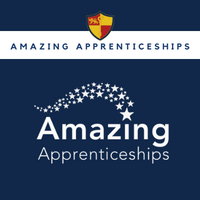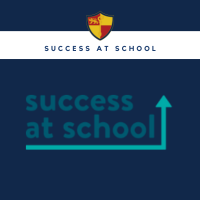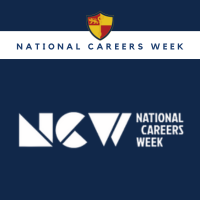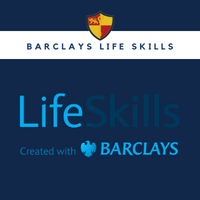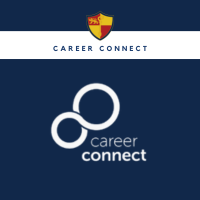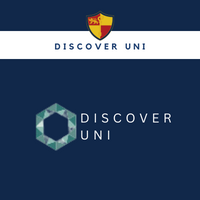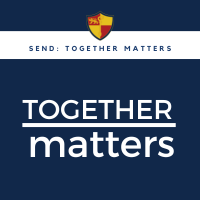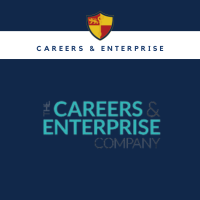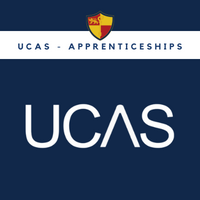

During Year 10 and 11 all students receive a 1-2-1 careers interview from our Careers Advisor, who is employed by the school through FR Careers, to impartially advise and guide students as they apply for their post-16 destinations.
Each student receives a 50-minute interview, where they will receive advice about suitable courses and possible post-16 destinations. The main focus of the interview is to ensure students have a post-16 destinations in place once they have completed their GCSEs. Our Careers Advisor will look to identify personal qualities and skills, come up with ideas for study and work, explore interests, likes and dislikes and identify barriers to assess future career and education goals.
After the interview students will be given an action plan which will detail the discussion, highlighting their options, next steps and how to carry out further research. Guidance is also given during assemblies and at lunch time drop-in sessions where students are informed about the variety of different post-16 pathways and how to apply for their chosen destination.
Below is a interview between our careers advisor and SSLT.
Why did you become a Careers Advisor?
I had a good education at secondary level in terms of academic learning but unfortunately, I did not have access to careers advice from someone who was skilled or qualified to guide and support me to understand all the options I could consider at the Post 16 stage. Consequently, I spent time trying to access support and feeling quite lost in terms of knowing what to do or what opportunities were out there for me. After deciding that studying at university could open some more doors, I discovered the training pathway to become a qualified careers adviser and started my journey towards achieving professional status. Aside from it being my job, I am passionate about making sure that young people understand the options available to them and realise their potential so that they can make their own choices about what direction they want to go in.
How did you become a Careers Advisor? (your educational path, experience etc)
I gained my GCSE’s, then progressed on to A levels. After my A Level studies I had several jobs including working for an insurance company, a bank and the civil service before returning to education to study at university aged 22. I completed my degree in Education and Fine Art at Liverpool Hope University and then gained sponsorship from a large careers organisation to study for a Postgraduate Diploma in Careers Guidance at Manchester Met University. Once I completed this in 2005, I became a careers adviser with the local authority careers service.
What do you think is the careers sector with the highest potential for growth in our lifetime?
Healthcare – the technological developments and care services required to keep up with increasing life expectancy and ageing populations is likely to create more and more jobs!
Can you share some top tip for students to achieve their career goals?
Careers research and finding out the facts! There is an abundance of careers resources to access online to help inform your decision making. Your school also provides lots of opportunity to engage with activities and events to support this too. Take control of your future by considering all the information out there, this is an ongoing process.
How can I promote myself and improve my job opportunities?
Consider how you can demonstrate that you have the employability skills you claim to have when you apply. For example, you may have stated that you have excellent communication skills – how will you convince the employer that this is true, do you have any examples of when you have used your excellent communication skills?
Where possible, try to keep a reflective log of times when you have used employability skills.
Look to take advantage of opportunities where you can gain or build upon your skills aside from studying for your GCSE’s. This may include pushing yourself outside of your comfort zone.
Start to get more comfortable with recognising your strengths! When it comes to recruitment processes, you’ll need to be able to highlight how fantastic you are. Don’t underestimate yourself, and what you can offer an employer.
How can students get in contact and book an appointment with you?
I am in school every week on a Monday. Students can speak to their form teacher who will send an email to either Miss Goode or direct to me. I’m am based in the library so please feel free to pop and have a chat during break and lunch times too.
What advice would you give your 16-year-old self and why?
Do not ignore your passion because if you have the chance to work in a role where you do something connected to your passion, it’s going to be a very enjoyable career!
I loved fashion from a young age and always enjoyed creative aspects of school. I would have liked to have had a career that involved fashion in some way but did not believe that there were options available to me so I decided that this would be an unrealistic career aspiration. Luckily, my other passion was helping and supporting people, and this does play a huge part in my role as a careers adviser.
Always ask if you’re not sure about something – you’re not expected to know the ins and outs of all thing’s careers. Something as simple as wanting to know what a word means can make your understanding much clearer e.g., what is an A level, what is a degree, how do I find an apprenticeship etc. From my own experiences as a student in my final year of school, I would have been guilty of not speaking up when I didn’t understand something. I think that if I had had access to a careers adviser who reassured me that it is okay to be confused about something then I would have most likely had many questions to ask!
Why do you think it's important to have a Careers Advisor in school?
Support and guide you to navigate through all the options available to you after year 11 and beyond. This includes simplifying and articulating information in a way that makes sense to you.
Challenge misconceptions you may have regarding study pathways and careers.
Encouraging and empowering you to make decisions for yourself.
Your careers adviser is there as a professional service for you as a young person to access at important transition points during your education.
Break down barriers to progression.




